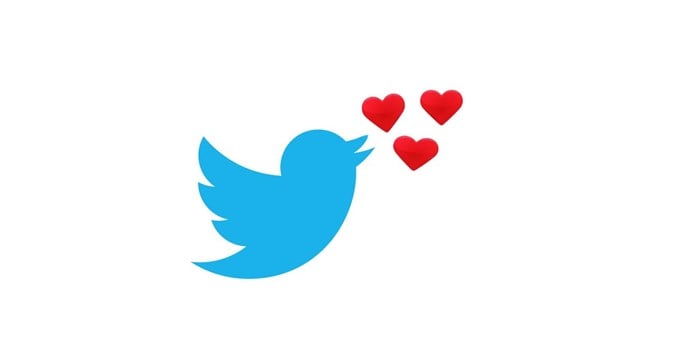
Top stories




That inner cringe, that moment of social awkwardness that you will re-visit later for an inner facepalm? That probably best describes my feelings about 'hearting' a tweet, where before Tuesday I just gave it a friendly gold star.
Hearts work on Instagram. It's an entire platform built around a sense of nostalgia, of special moments, of basically the warm and fuzzies. If you hit a heart on Instagram, you're quite comfortable letting another user know that there was something emotionally evocative about their image. On Facebook we have the friendly thumbs-up 'Like', an acknowledgement like a digital smile.
Twitter, however is a completely different beast. It's short and sharp. When you have 140 characters you simply get to the core of a message. And your message is rarely warm and fuzzy enough to warrant a red heart.
It's our source for breaking news (news is important but it's very rarely lovely), it's a place of debate (often heated and engaging, but probably not worthy of hugs). It can be funny, it is immediate, and it can be powerful. Do we have to get soppy about it?
Apparently we do.
"We are changing our star icon for favorites to a heart and we'll be calling them likes. We want to make Twitter easier and more rewarding to use, and we know that at times the star could be confusing, especially to newcomers," it said in a blog) about the development.
It's all about showing how you feel, says Twitter, and perhaps there is merit to that argument since the reaction from users was an emotional one.
"I have no love for Twitter hearts," wrote Mashable's Lance Ulanoff, "When I like a tweet, think it's funny or want to give a little thumbs up, I usually give it a favorite - a star. Now, I have to think about giving it a heart. It seems like too much, like I'm running around giving a hug to everyone on Twitter. Yuck."
Yuck indeed. But let's not overreact. Social media outrage about any change tends to run out of steam pretty quickly. The more intriguing aspect of this is trying to understand why Twitter came over all Instagram, in perhaps the most clumsy way possible.
The answer probably lies in demographics. The latest GlobalWebIndex shows that while Twitter still has more users in more countries than Instagram, it's only a clear favourite with older users. With people between the ages of 16 and 24, the gap in preference between the platforms is extremely narrow.
Add to this, the fact that while the blue bird is reporting increased revenues, its pace of growth in active users, according to the BBC is at its slowest since 2013, and you can sense the tension. And then of course, its share price plummeted 11% in October this year.
So why are people wandering away from the network?
Part of the answer may lie in the fact that while Twitter is a megaphone for those who have something to say (the media, politicians, trolls), it seems to offer little for those who just want to connect. It's noisy, conversations can be disjointed and difficult to follow.
Recent fixes have tried to address that very problem - you can now view threads of conversations on Twitter, and Twitter Moments is an effort to filter out the noise.
Will it be enough to keep people on the platform? We'll see. Hearts instead of stars certainly isn't the answer. In fact, cynically, I'd say the hearts feature smacks a bit of desperation. Desperation and awkwardness. So much awkwardness.